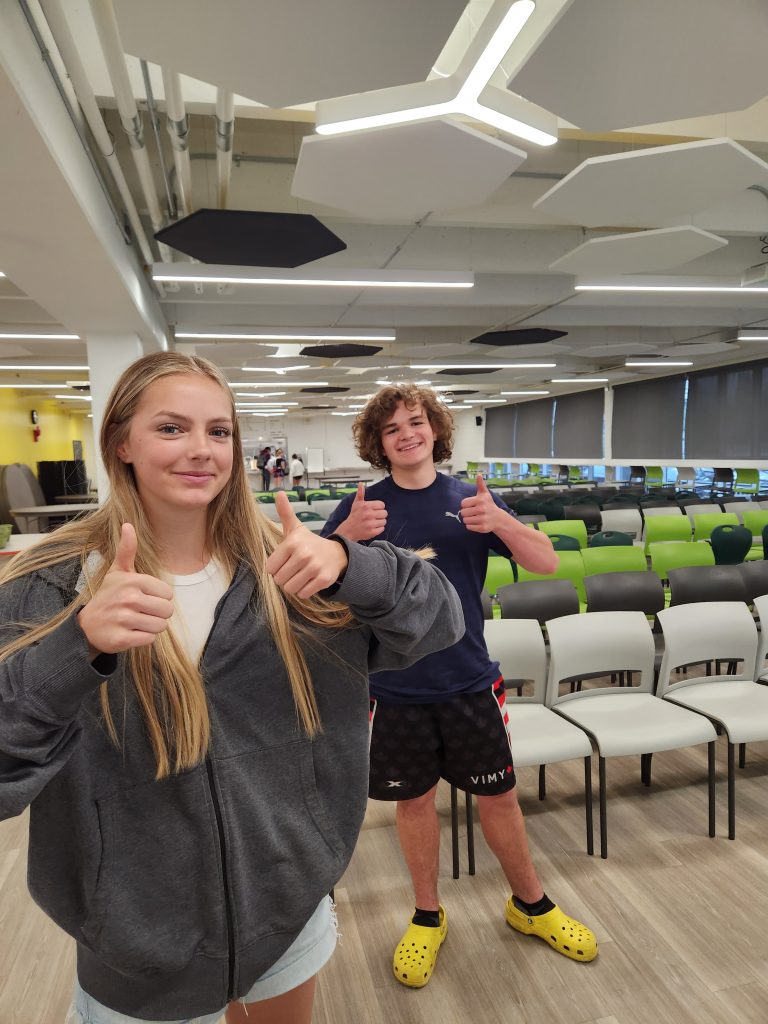Student Care & Ethics

YPI strongly believes in centering youth voices and experiences in ways that are authentic, respectful and ethical to all those involved.
During the course of this program, students may feel strongly about talking about issues, events, and local charities that are personally relevant to them. These guidelines will provide some guidance that will help them make an informed decision about the sharing of personal information.
This page aims to encourage students to reflect on the following key considerations during their participation in the YPI program. Underpinning each of these considerations is the position that students have the right to have their voices, experiences, and expertise be heard and learning needs and exceptionalities met throughout this program, while also protecting their own, and others’, privacy.
1. Personal Stories
You don’t have to share your personal story. Students do not need to share their own personal story about experiencing or overcoming a social justice issue in order to be valued, feel important, or be heard. This means that you do not need to share your own personal story to help people understand that your chosen charity is doing valuable work. As an alternative to telling your personal story, you can show how important the social issue is to you through how you speak about it, the information you present, and by promoting ways to support work addressing the issues through meaningful action.
2. Privacy & Digital Imprint
Assume anything shared on the internet stays there forever. You should be aware that any photos, videos, digital products/presentations and any other digital media captured by your teachers and/or the YPI team as well as the work you create through your YPI experience could be seen by classmates, the larger school community, parents/guardians, other members of the community, and sometimes people you may not even know. Anything shared online could resurface in the future, and could have consequences on your mental health and well-being.
3. Permission & Consent
Unless you have full consent and permission, it may not be your story to tell. Sometimes, when we feel inspired or moved by something, we might share personal stories we have heard from our friends, siblings, extended family, community members, and even acquaintances. While our intention might be good, the impact is that we are sharing a story and personal information about an individual that is not ours to share, and it might have consequences that we are not aware of.
At times, we may be directly or indirectly impacted by the same social issue, but that does not mean we have the same experiences or outcomes from that interaction. Sometimes, when we know someone who has personally lived through a social issue or injustice, like a family member or a friend, we sometimes may unintentionally claim their story as ours, as well as their struggle as our struggle. This can be harmful because living with someone who has faced injustice is not the same thing as facing that injustice yourself.
For example: If you live with someone who has a disability, has lived in poverty, has experienced assault or violence, it is best not to share these stories without their permission and consent. Sometimes, even when we mean to do the right thing, we might actually be hurting the person we care about indirectly.
4. Personal Care
- The Hope for Wellness Help Line (Indigenous)
- The Indian Residential Schools Crisis Line
- KUU-US Crisis Line
- LGBT YouthLine (Ontario)
- Trans Lifeline Canada
- Black Youth Helpline
- Youth Helpline
- Bullying Helpline
- Crisis Services Canada
- Wellness and Emotional Support (WES) for Youth Online
- The 519’s Equity Glossary of Terms
- YPI’s list of Canada-wide Mental Health Support and Services
5. Caring For Each Other
You need to be mindful of those around you. You should be aware of how your participation in the YPI program may impact the people/group you’re working with, your audience and any other group who may be personally affected or impacted by the social issue you choose to explore. You are encouraged to exercise awareness, mindfulness and empathy to support your fellow peers, students, and anyone who may learn about the social issue and organization you have chosen to advocate for.
The following resources are available to you on how to care and show up for each other:
- Showing Up for Racial Justice
- BeThere.org (A mental health ally resource)
- Indigenous Ally Toolkit (YouthREX)
- How You Can Be an Ally in Working Against Anti-Black Racism (YouthREX)
- A Guide to Being an Ally to Transgender and Nonbinary Youth (The Trevor Project)
- Everyday Feminism Online School (topic-based resources on how to take action)
